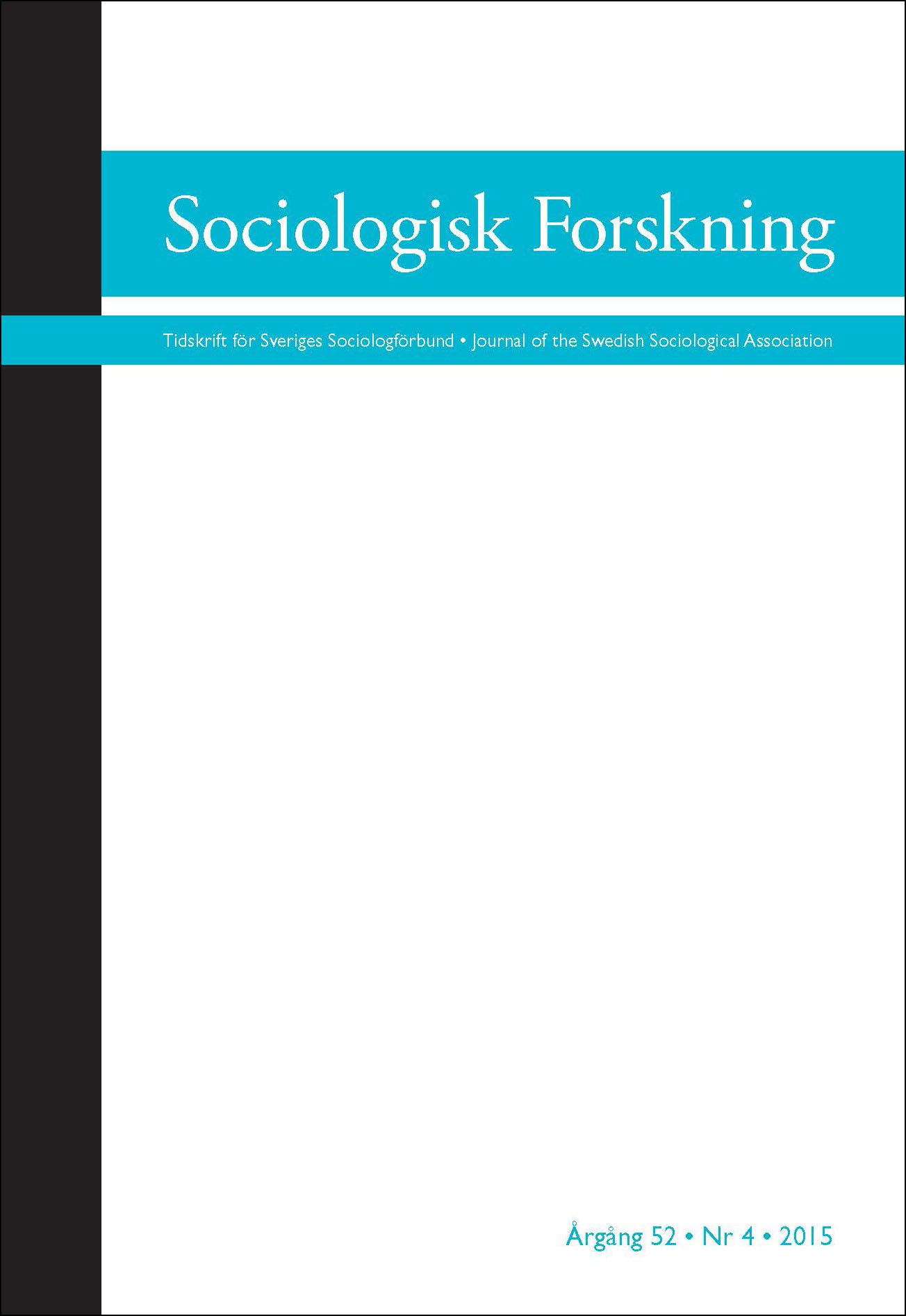Humorforskning i svenska organisationer och arbetslivssammanhang
en litteraturöversikt
DOI:
https://doi.org/10.37062/sf.52.18300Nyckelord:
humor, joke, organization, Swedish, working lifeAbstract
Research on humor in Swedish organizational and working life contexts: a literature review
The objective of this study was to provide a more coherent picture of research on humor in Swedish organizational and working life contexts, where even non-strictly organizational studies were included due to their high relevance in the research area. A systematic review of the literature published during the last 15 years was used to summarize an obviously undeveloped research area in Sweden. Published peer-reviewed articles that primarily examine humor were analyzed. Seventeen representative articles have been found and systematically reviewed and compared focusing on four questions: purposes and contexts of the studies, theoretical approaches, methods and main results. The analysis identifies four focal points that describe current state of humor research in Sweden: 1) positive function of humor appears to be a predominant research issue while humor’s subversive function, power relations and negative functions are less represented, 2) limited comparative studies of different contexts 3) biased theoretical approaches and limited studies of theory developing approach 4) overrepresented qualitative research approach. The above issues were discussed in relation to relevant international humor research.
Downloads
Publicerad
Referera så här
Nummer
Sektion
Licens
Allt material i Sociologisk Forskning publiceras med omedelbar öppen tillgång (open access), under Creative Commons-licensen CC BY-NC-ND 4.0.
Allt innehåll i tidskriften är fritt tillgängligt utan kostnad och får för icke-kommersiella syften fritt läsas, laddas ned, kopieras, delas, skrivas ut och länkas. Innehållet får dock inte ändras. När innehållet används måste författare och källa anges. Upphovsrätten till innehållet tillhör respektive författare. Inga publiceringsavgifter tas ut.





